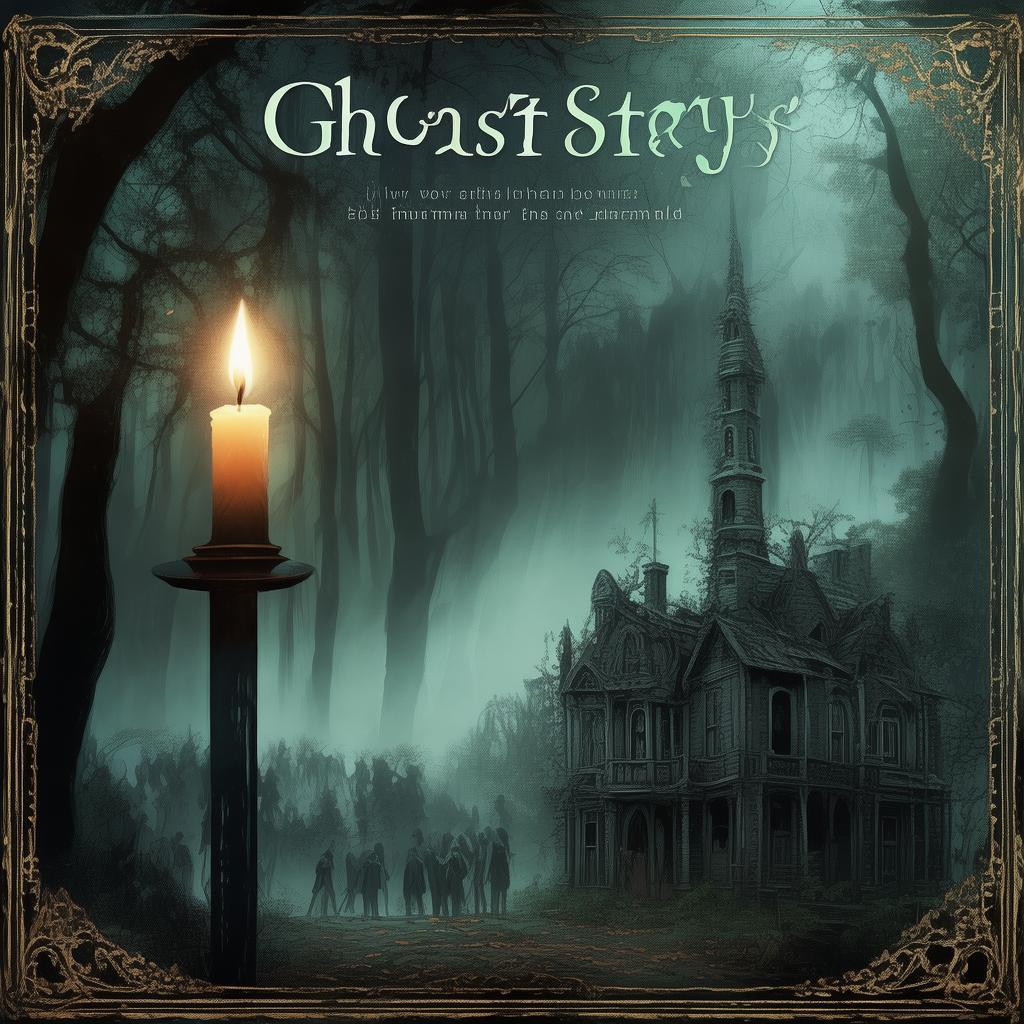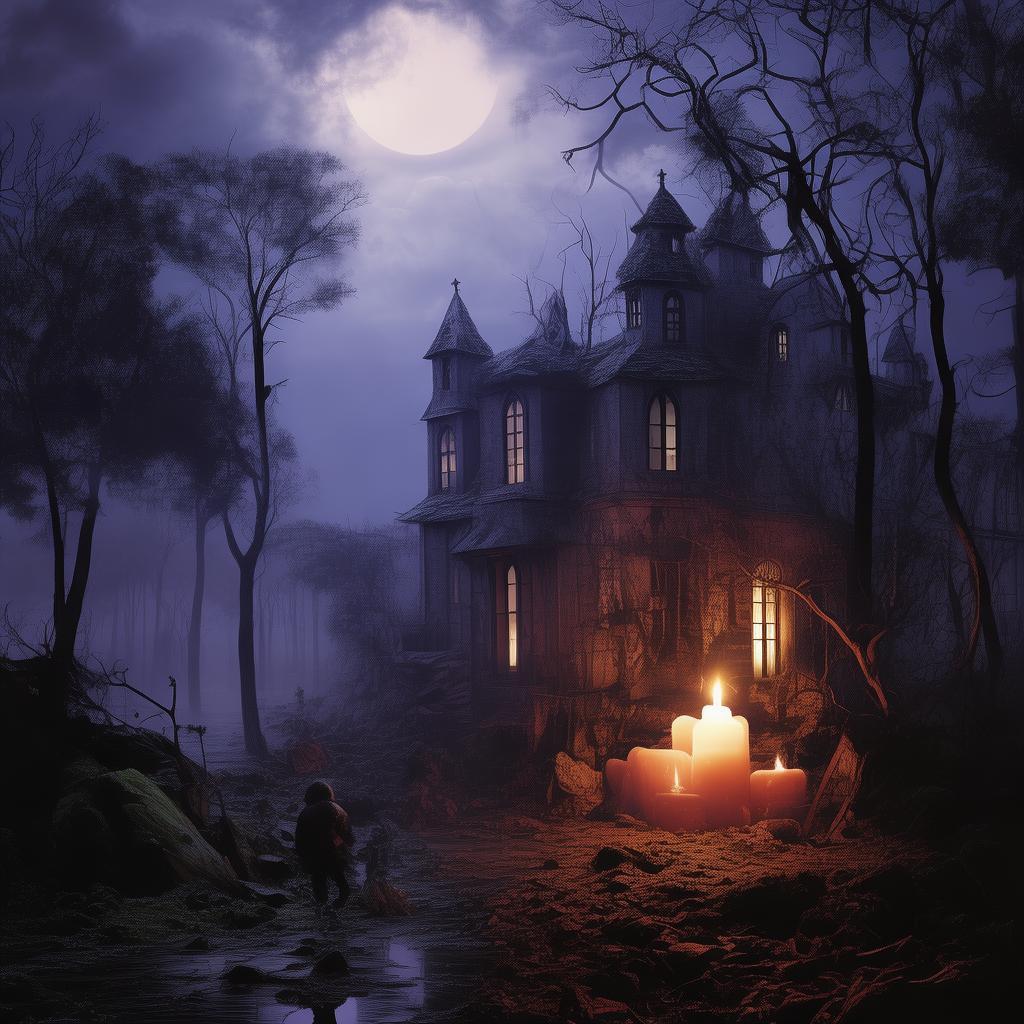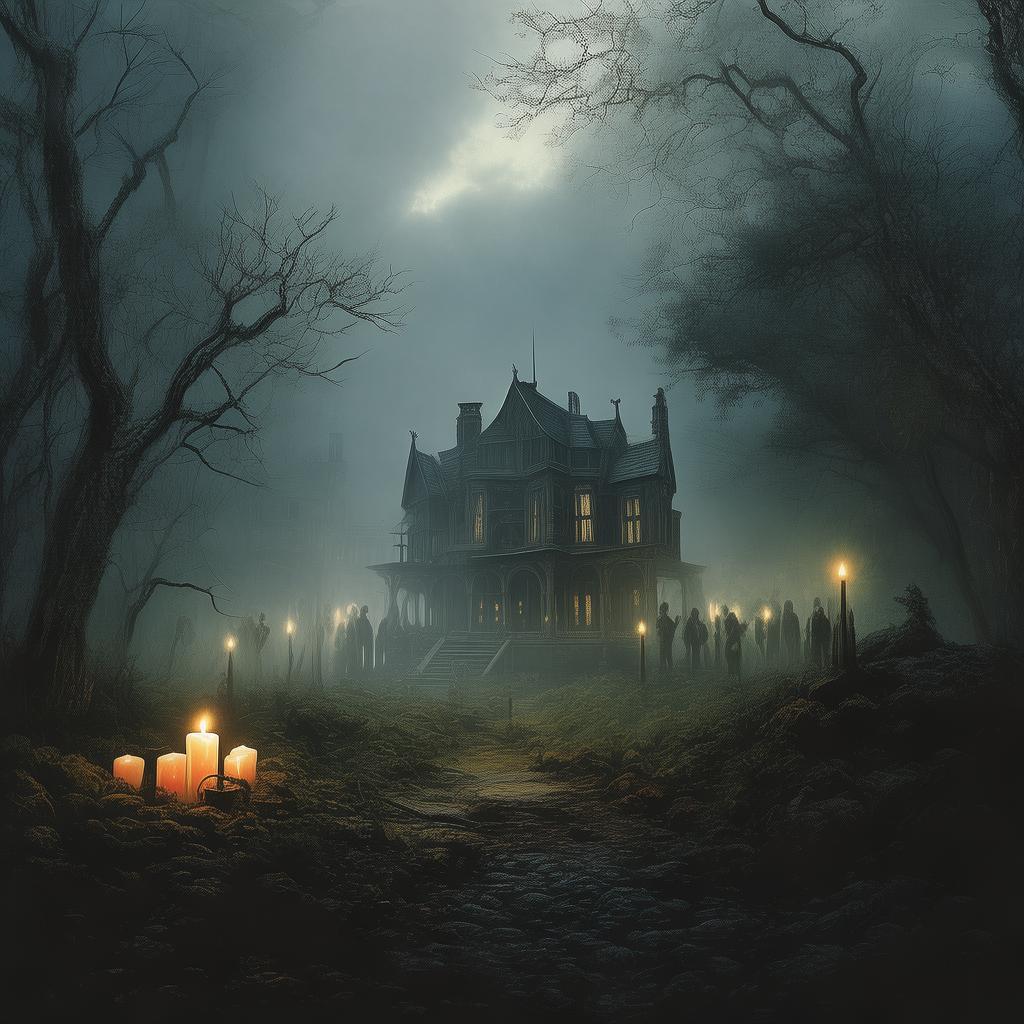Whispers from the Unseen: The Haunting of Lao Li's Tea House
In the heart of the ancient city of Hangzhou, nestled between the serene West Lake and the bustling streets, stood Lao Li's Tea House. It was a quaint establishment, with its walls adorned with delicate paintings and the air filled with the rich aroma of freshly brewed tea. The tea house was a sanctuary for those seeking solace or a place to reflect, a place where the past and present seemed to blend seamlessly.
One crisp autumn evening, as the sun dipped below the horizon, casting a golden glow over the city, a man named Ming, a curious patron with a penchant for the supernatural, stepped into Lao Li's Tea House. Ming was a writer, often drawn to the peculiar and the unexplained. His latest project was a series of short stories based on the city's folklore, and he felt an inexplicable pull to this place.
Lao Li, the elderly owner of the tea house, was a man of few words but many stories. He had seen countless faces come and go, each with their own tales to tell. Ming had visited the tea house before, but tonight was different. As he settled into his usual spot by the window, he noticed a woman in her late twenties, dressed in a traditional qipao, who had taken a seat across from him.
Her eyes were fixed on the window, as if she were searching for something just beyond the glass. Ming couldn't shake the feeling that she had been there before, though he was certain he had never seen her before in his life. Her presence was unsettling, almost ghostly.

As the night wore on, Ming and the woman engaged in polite conversation, though her words were often disjointed and her thoughts seemed to drift. Lao Li, who had been watching the exchange with a knowing smile, approached Ming and whispered, "That woman is haunted, Ming. You must help her."
Ming's curiosity was piqued, and he agreed to assist Lao Li. The next day, Lao Li revealed that the woman, named Meili, had been a frequent customer for years, but something had changed. She had started to show signs of distress, speaking in riddles and often staring off into the distance.
Together, Ming and Lao Li began to piece together Meili's story. They learned that Meili had once been a performer at the tea house, a talented singer who had captivated the hearts of many. However, a tragic accident had left her with a disability, and she was shunned by the community.
The accident had happened many years ago, and the story of what had transpired was shrouded in mystery. Ming and Lao Li decided to delve deeper, interviewing the old patrons who remembered Meili. Each one had a different version of the tale, but one thing was clear: Meili's spirit was trapped in the tea house, unable to move on.
As they continued their investigation, Ming and Lao Li discovered that the tea house itself was no ordinary place. It was built on the site of an old temple, and the spirits of those who had once lived and died there still lingered. Meili's spirit, bound to the temple, had found solace in the tea house, where she had once performed.
Ming and Lao Li decided to confront the spirit, hoping to free her from her tormented existence. They prepared a ritual, using the traditional methods of the temple, and called upon Meili's spirit. In the heart of the tea house, as the air grew thick with emotion, Meili's spirit finally emerged.
She was a vision of sorrow, her eyes filled with tears. Ming and Lao Li explained to her that they understood her pain and that they were there to help her find peace. With their help, Meili was able to release her hold on the tea house and move on to the afterlife.
As Meili's spirit faded away, Ming and Lao Li felt a profound sense of relief. The tea house returned to its usual tranquility, and the patrons who had been affected by Meili's haunting began to return. Lao Li, however, knew that the tea house would never be the same. It had become a place of solace for the lost and the tormented, a sanctuary where spirits could find peace.
Ming's story of Meili's haunting spread quickly, becoming a legend in Hangzhou. Lao Li's Tea House remained a place of mystery and tranquility, a place where the past and the present would always coexist. And Ming, having experienced the supernatural firsthand, continued to write his tales, inspired by the unexplained and the haunting beauty of the world around him.
✨ Original Statement ✨
All articles published on this website (including but not limited to text, images, videos, and other content) are original or authorized for reposting and are protected by relevant laws. Without the explicit written permission of this website, no individual or organization may copy, modify, repost, or use the content for commercial purposes.
If you need to quote or cooperate, please contact this site for authorization. We reserve the right to pursue legal responsibility for any unauthorized use.
Hereby declared.









